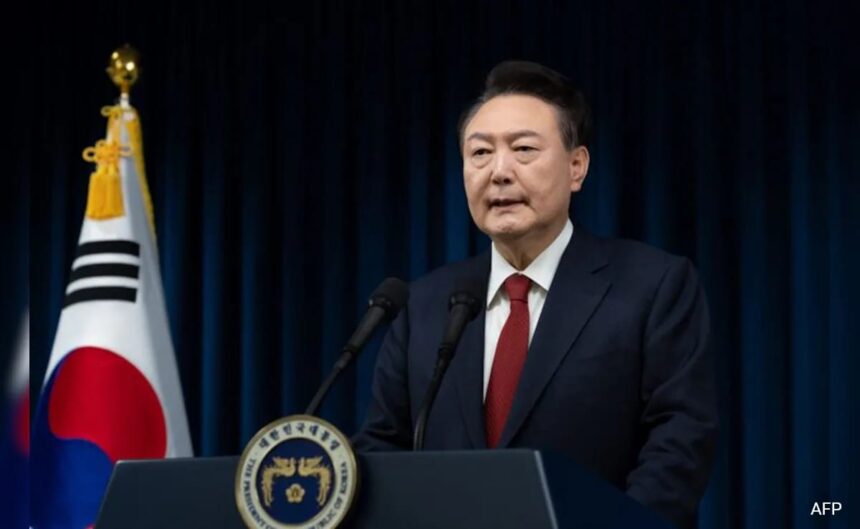South Korean President Yoon Suk Yeol is facing a second impeachment vote on Saturday after his controversial declaration of martial law last week. This move has sparked widespread outrage and calls for his removal from office. Yoon’s presidency is just the latest in a series of South Korean leaders who have faced scandals and downfalls. Let’s take a look at the tumultuous history of South Korean presidents.
In 2016, Park Geun-hye, the first female president of South Korea and daughter of former dictator Park Chung-hee, was impeached and later jailed for corruption. She was accused of receiving millions of dollars in bribes from conglomerates like Samsung, as well as abusing her power by sharing classified documents and blacklisting artists critical of her policies. Park was sentenced to 20 years in prison, but was controversially pardoned in 2021 by her successor, Moon Jae-in. Yoon Suk Yeol, the current president, played a key role in her impeachment and incarceration during his time as a prosecutor.
Lee Myung-bak, who served as president from 2008 to 2013, was also embroiled in corruption scandals. He was sentenced to 15 years in prison in 2018 for taking bribes from Samsung in exchange for political favors. However, he was pardoned by President Yoon in 2022.
Roh Moo-hyun, a liberal president known for his support of rapprochement with North Korea, tragically committed suicide in 2009 amidst a corruption investigation involving his family members. His death shocked the nation and raised questions about the pressures of political life.
In 1987, military dictator Chun Doo-hwan was forced to retire in the face of mass protests, handing power over to his protege Roh Tae-woo. Both men were later convicted of treason and corruption, but were granted amnesty in 1998 after serving only a few years in prison.
The turbulent history of South Korean presidents dates back to the assassination of dictator Park Chung-hee in 1979, which led to a coup by army generals Chun Doo-hwan and Roh Tae-woo. The country has also seen coups, assassinations, and forced resignations of its leaders, highlighting the volatile nature of its political landscape.
As South Korea grapples with yet another presidential scandal, the nation reflects on its history of political turmoil and the challenges of maintaining stability and integrity in government. Only time will tell what the future holds for President Yoon Suk Yeol and the fate of South Korea’s leadership.








